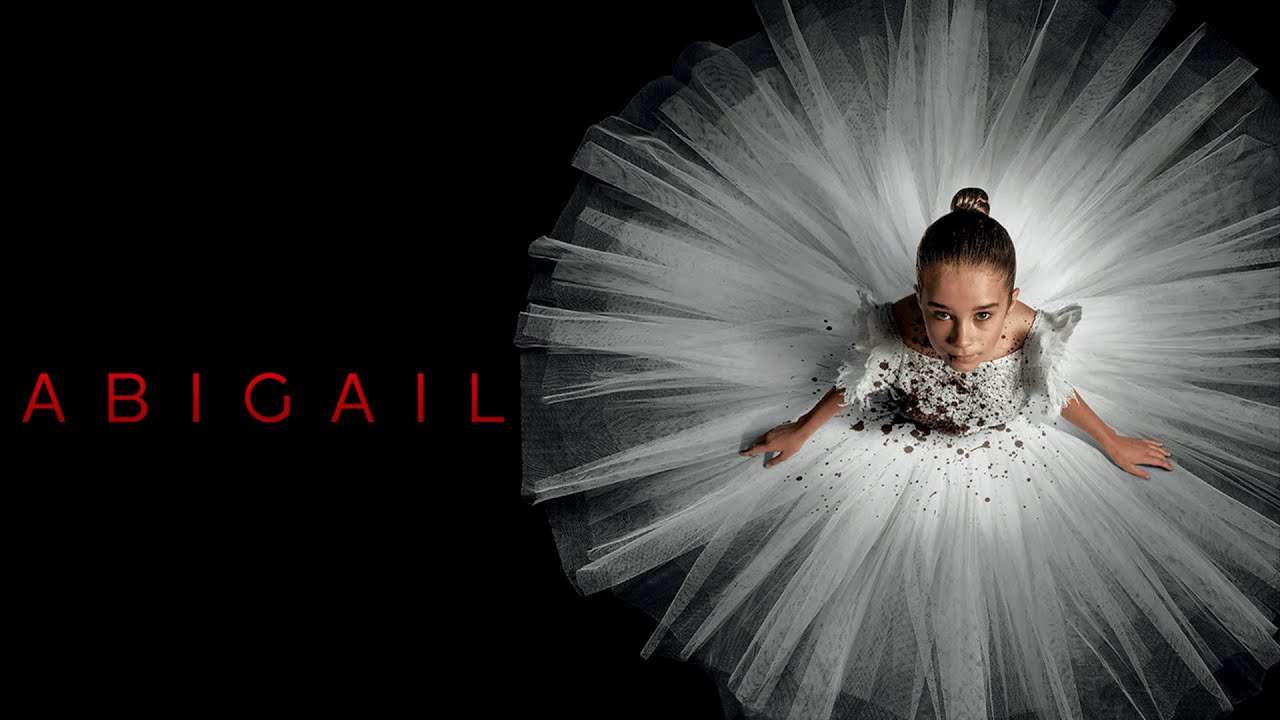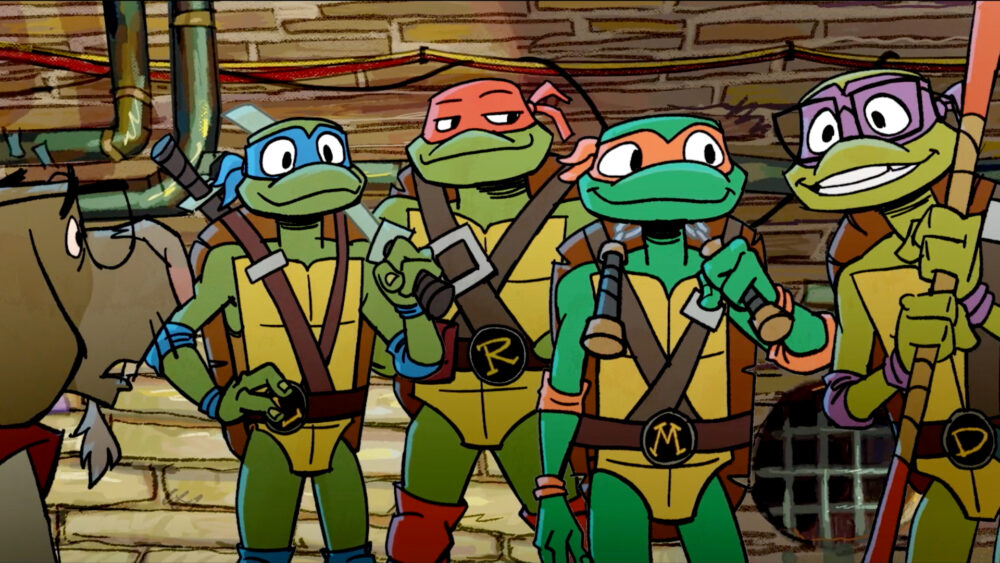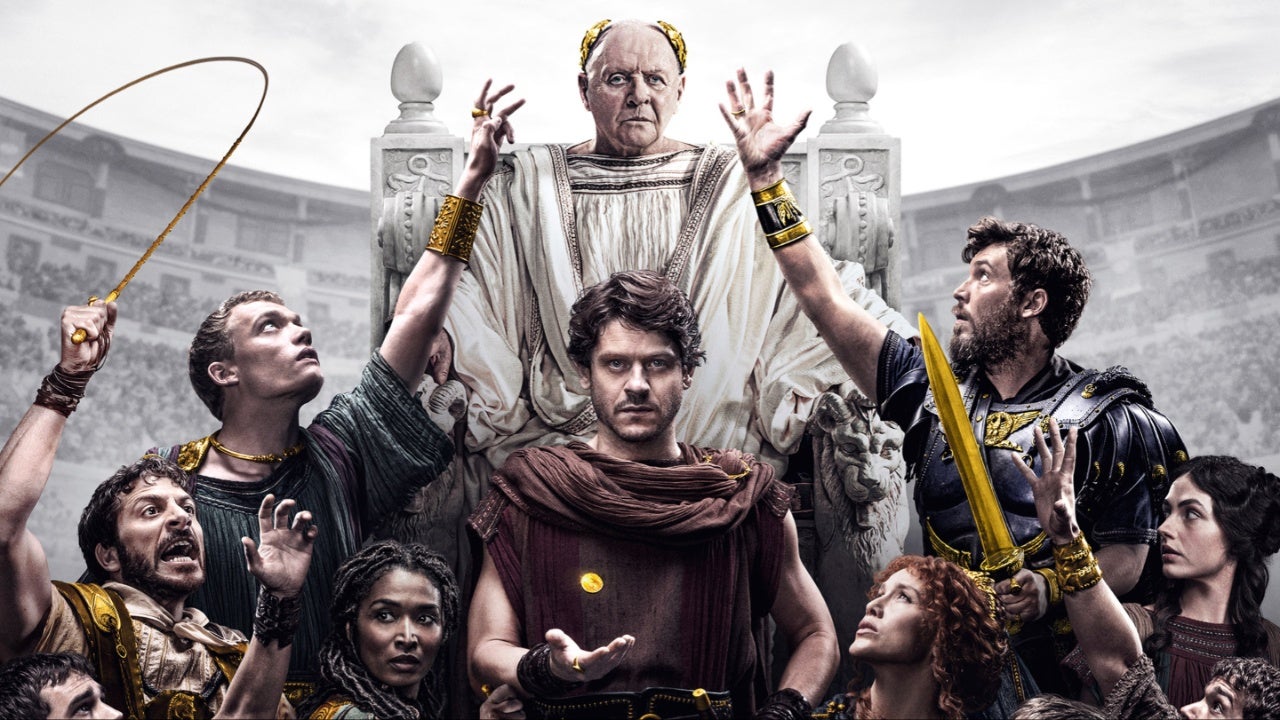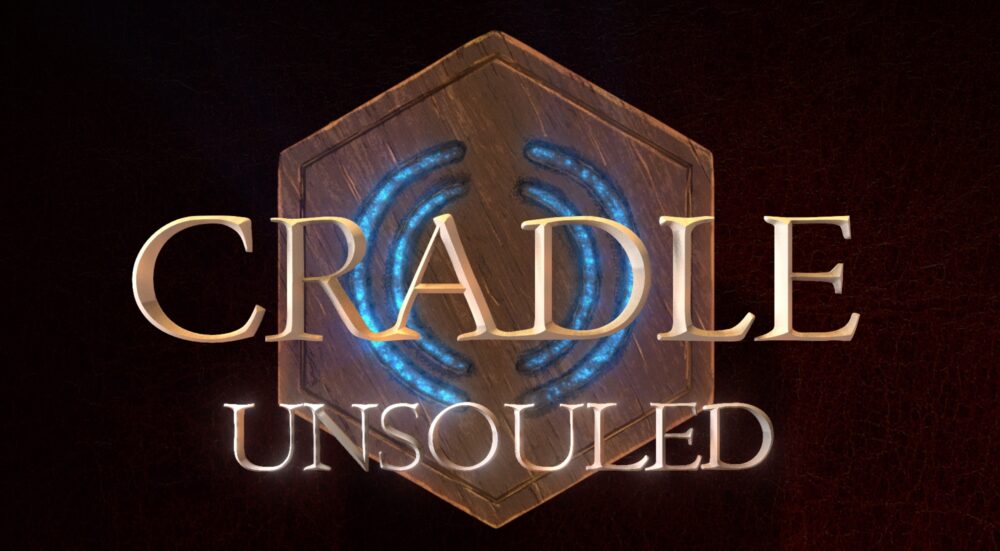Movie
Eli Roth’s ‘Thanksgiving’: Sooo ungrateful
A year after a Black Friday sale riot that resulted in tragedy, the people of Plymouth Mass are terrorized when a killer dons the folkloric mask of the hometown hero John Carver (irony!) to take revenge!
So it’s right around turkey genocide day, and the kids of our high school are having a nice little standoff with the kids from a rival HS football team, or whatever it is, as we do in relatively small towns. The Wright-Mart, owned by town entrepreneur Thomas Wright (Rick Hoffman), is about to have its huge Black Friday sale, and though it’s only on the way to the party destination, our kidlings insist we have to stop at Wright-Mart and pick up some supplies.
Jessica Wright (Nell Verlaque) is our Final Girl, but here at the Wright-Mart sale riot she’s just a daddy’s girl who happens to have snuck her dumbass friends into an employee entrance early. Her friends Gabby (Addison Rae) and Yulia (Jenna Warren), and their jock boyfriends Scuba (Gabriel Davenport) and Evan (Tomaso Sanelli) are all gleefully razzing the getting-angrier folk outside the doors, right up until the moment the doors crack and flatten a poor security guard, setting off a riot of epic holiday proportions!
As was brought into uncomfortable spotlights both during and right after the pandemic, humanity as a whole can be some seriously destructive and selfish a*sholes. The riot at Wright-Mart that resulted in the death of the freaking store owner’s wife Amanda (Gina Gershon) and a few others, saw people beating each other with waffle iron boxes, trampling and rampaging whilst idiot Evan there just has to hop up on a register and film everything on his phone, frames the idiocy and carelessness of the mob mentality to a T. Director Eli Roth went by an over-the-top method to show the destruction of the riot, which is good because it reminds us to laugh at a scene which is, for some, a little too close to home.
Jess’s boyfriend Bobby (Jalen Thomas Brooks), formerly of the Golden Arm persuasion, up and disappears when it looks like the injury he sustained in the riot has crushed his pitching dreams. And it’s not weird or creepy at all yes, Jess has now taken up with the boring but very persistent nerd Ryan (Milo Manheim), but still hangs out with her former jock friends and their girlfriends, trying to make a blend. To top it all off, Jess’ dad has a new woman, the plastic-y and greedy Kathleen (Karen Cliché), who wants the Black Friday sales of Wright-Mart to continue merrily on.
Speaking of creepy, this year, a year after the Wright-Mart riot to be precise, masks with the supposed likeness of John Carver, the folkloric hero figure and purported progenitor of Thanksgiving around these parts, have begun circulating town. And of course, someone with a real hunger for revenge has taken it upon themselves to don a Carver mask and invite the catalysts of the Wright-Mart riot to a Thanksgiving feast they’ll never forget!
The good ole boy Sheriff Eric Newlon (Patrick Dempsey) tries to keep up with the murderous shenanigans, but always seems a step behind when it comes to the Carver executions. First up is the Karen of your nightmares, Lizzie (Amanda Barker) the waitress at the local diner, who takes the whole half-off sale thing far too seriously. Then the cowardly security guard (Tim Dillon) and his brat of a cat, and a disastrous attempt at a trap laid for Carver during the annual Thanksgiving day parade results in more deaths at the hands of a killer clown (anybody else sees callbacks to Roth’s Clown in there too?), and the special VIP guests are late for a Thanksgiving feast with all the trimmings, served up by the Carver killer himself.
Giving homage to the likes of Craven’s Scream movies, and even the zany early Evil Dead films, Thanksgiving reminds us that our selfishness has long-lasting and even murderous consequences, and how the best of us can be twisted into the worst of humanity far too easily. Laugh out loud at the excessive gore and hilariously inventive death scenes, because it’s far too late to cry, and remember to be genuinely thankful for the blessings in your life, lest the Carver killer with an understandable motive invites you to your own feast!
Gobble down as much as you can stomach, of Eli Roth’s Thanksgiving in theaters now!
Movie
‘Abigail’: Bite Me Harder Tiny Dancer

A gang of misfit kidnappers find their tiny target far more bloodthirsty than they bargained for!
So, unfortunately, the trailers gave it away and let’s be real that’s why most of us are here, the knowledge that the kidnap victim Abigail (Alisha Weir), codenamed by the would-be kidnappers appropriately as ‘tiny dancer’, is in fact, a vampire. Not a spoiler, point of fact, one of the film’s actual great selling points. And the reactions from the misfit club when faced with a real actual f*cking vampire, range hilariously from the blunt “no such thing as vampires” all the way to, “Are we talking True Blood or Twilight rules or what?” all while covered in buckets and buckets of blood.
Anyway, the gang manages to subdue and abscond with the aforementioned Abigail, in a pre-prepared duffle bag, like you do, and converge to a new location, a house oddly similar to the one she was just taken from. Welcomed and given codenames by a man who introduces himself as Lambert (Giancarlo Esposito), our misfit club is told to simply hold down the fort in this strange old house with the girl chained up in a room and one person to attend her, for twenty-four hours, and they’ll all get paid.
As inevitable as the tides, the dopey druggie Dean (Angus Cloud) is the first to die, and we’re going to give that death-style points for inspiring terror right off the bat. The very controlling Frank (Dan Stevens, holy crap yes that is the guy from FXs Legion) is also of course the most suspicious – of everyone around him, sure, but also he himself is totes sus. We don’t learn terribly much about the musclebound tank who gets dubbed Peter (Kevin Durand), he’s your pretty typical little-brains-heart-of-gold muscle-for-hire any proper gang needs, right down to the bottle problem. Sammy (Kathryn Newton), well, even for being a purported hacker-type, she has, like, reality issues. Rickles (William Catlett), he’s arguably the most dangerous among them, ex-military and yet somehow here and involved in kidnapping for a few mills. Joey (Melissa Barrera) is our Final Girl, and though she has the inevitable problems in her recent past, she seems more capable of doing the hard thing and still somehow empathizing at the end of the day. Must be her burning desire to get back with her son.
The fit hits the shan pretty quickly, and Abigail morphs from tiny dancer to tiny monster, though honestly, the way Abigail spoke the entire time in the film, if the ‘nappers had been paying close enough attention, would have been a solid clue. The performance from Alisha Weir as Abigail is incredible, as she literally dances a fine line between comedy, tragedy, and outright monstrosity. With a face full of makeup and the force of a tiny tornado to back it up, Weir brings to mind the great performances of the vampires in 30 Days of Night who saw the practicality in the need to trap their food, but also, play with it a bit first before feasting! Anything else would give away the absolute fun time that is Abigail, so you should go see it, out in theaters now!
Movie
Dune Part Two: The Lisan Al Gaib comes for you!

Welcome back to our struggle for control of the known universe already in progress, the continuation of the journey of Paul Atreides from exile to Emperor, Dune Part Two!
So when we last left our intrepid if dubious heroes, House Atreides had been betrayed and virtually destroyed, by a combination of House Harkonnens surprise attacks and the added treachery of Emperor Shaddam and his Sardaukar. Paul Atreides (Timothee Chalamet), the last surviving heir (so far) of House Atreides and his mother Jessica, have taken refuge on the desert planet of Arrakis amongst the indigenous Fremen, and as far as most are aware, the other remnants of House Atreides are dead as well. And here is where we catch up with everyone, as the struggle for Atreides emergence and dominance begins in earnest!
The Emperor’s daughter Princess Irulan (Florence Pugh) is known for her many skills, but her copious note-taking and writings on the large events shaping her world come to the forefront as she takes counsel with her father amidst games of chance on their homeworld. Her life is one of luxury and privilege but alas, Irulan is a trained Bene Gesserit and is well aware that in all likelihood, she will be used as a pawn in the marriage games empires have to go through. Bet she never imagined it could be to a House everyone swore had been utterly destroyed.
Meanwhile, on Arrakis, Paul is trying to integrate himself into the Fremen way of life, which is admittedly far different from the life he led back on the Atreides homeworld of Caladan. (If nothing else, Caladan has vast oceans.) The Fremen are fiercely independent, gloriously strong fighters, survivors who dare to ride and revere the giant sandworms that inhabit their planet that they call Shai-Hulud, and rightfully distrustful of outsiders. After all, the previous stewardship of Arrakis belonged to House Harkonnen, known for their cruelty and glee at hunting Fremen and torturing their victims, sometimes for weeks at a time. But Paul won his and Jessicas way into the Fremen by fair combat against Jamis, and if nothing else, the Fremen are firm in their beliefs of the old ways.
Or rather, the elder Fremen are, most particularly the famed Fedaykin fighter and Naib (leader) of Sietch Tabr Stilgar (Javier Bardem) is adamant in his unshakable belief that Paul is the foretold Lisan Al Gaib, the Voice from the Outer World, that will lead the Fremen to peace and paradise. Stilgar’s steadfast belief in Paul’s potential only grows, and he manages with just that to convince a great many of the other Fremen elders. The younger generation of Fremen however, of which Paul’s beloved Chani (Zendaya) is a part, generally scoff at the legends of otherworldly prophets and Arrakis as a fabled green, wet heaven. In the beginning, Paul himself swears he doesn’t want to be the Messiah, only a Fremen fighter amongst the rest of them, hundreds of years of the Missionaria Protectiva, the Bene Gesserit practice of spreading useful religious propaganda as seeds on various planets, is working double-time against him. It doesn’t help that Paul’s mother Jessica (Rebecca Ferguson) is expounding on that myth as much as she possibly can.
And why would she do that? Survival yes, but also, Jessica is a thoroughly trained Bene Gesserit and knows of plans within plans within plans. Jessica also has many secrets of her own, and one very important one happens to be that she’s pregnant with Paul’s sister. The Bene Gesserit bodily control may be something out of legend, but even Jessica, possibly Reverend Mother Mohiam’s best and most fractious student, will have trouble with the trial the Fremen are insisting she go through to become truly one of them. The Reverend Mother equivalent of Sietch Tabr, known as their Sayyadina, is old and dying, and the Fremen have to have a Reverend Mother. Jessica tells Paul this much and explains that each culture is different in their trial to become a Reverend Mother, so she honestly doesn’t know what to expect. The reality happens to be worse than she could’ve imagined – Jessica must drink the Water of Life, a deadly poison that comes from Shai-Hulud (sort of), and come out the other side of it. And Jessica manages to do it, barely, with almost all of the consequences going to the poor fetus in her womb, the girl that will grow to become Alia Atreides, an insane legend in her own right. But for now, the unnamed fetus is awake and aware and full of the memories of generations of Bene Gesserit women that came before her – before she was even born.
Paul participates in razzia raids amongst the Fremen as they work to take out the spice mining operations of the Harkonnens, immerses himself in the vastly different desert culture of his chosen people, and perhaps most importantly, his romance with his beloved Chani only grows stronger. After declaring his desire to join the fierce fighter elites amongst the Fremen known as Fedaykin, Paul is told by Stilgar that he must summon and ride one of the giant sandworms, the embodiment of Shai-Hulud where the Fremen get their terrible tooth Crysknives from. And after much sendup, in a glorious scene of blinding sand and huge monstrous killer worm-riding, Paul is triumphant and riding atop the sacred creature, his Maker hooks set properly to control the great beast, waving at great distance to his fellow Fremen as Chani looks on in bemusement.
But that’s all external, and inside Paul is beginning to become divided on what he wants to do. As Jessica pushes the Protectiva hard amongst the women and priestesses of the Fremen, she is also pushing her son to become much larger than he ever wanted to be, if nothing else a conqueror can take revenge for the destruction of House Atreides and the death of her beloved Duke Leto. Paul may have earned his place amongst the Fremen and been given new names – Usul, meaning the strength of the base of the pillar, as his private name within the Sietch; and Muad’Dib, from the small mouse survivor of the desert, well versed in desert ways, called ‘Instructor-of-Boys’ in Fremen legend, as his open-use name – but now everyone wants Paul to be something greater, and potentially more destructive, than what he currently is. It only gets worse when Paul begins to suffer prophetic dreams, and visions when he’s awake, prodding him further to his destiny as an epic conqueror of worlds. Nothing can be done for it, Paul convinces himself that he must take the Water of Life himself, to awaken the sleeping prophet inside himself, and allow him to hopefully See a path through the future.
The problem with that plan, is that Bene Gesserit are almost exclusively all women, and only they are supposed to know how to transmute poisons internally, along with all sorts of other “witchcraft”. But Jessica has been training Paul in forbidden Bene Gesserit ways all his life, and as much as Paul might rail and even quail against it, there is no denying his incoming destiny, crushing any resistance he may have with all the force of a giant sandworm hunting a spice blow. And even when Paul has finally given in and taken the cursed substance almost mockingly called the Water of Life, it falls to another strong and prophetic in her right female in his life, his beloved Chani, to save him from himself. But even Chani can’t stop Paul’s destructive destiny as the conqueror of the known worlds, guilty of slaying millions upon millions of people in his quest for vengeance, thinly disguised as peace.
Over on the Harkonnen homeworld of Geidi Prime, “Beast” Rabban (Dave Bautista) is disgusted and enraged at the continuing Fremen raids against the Harkonnens on Arrakis, and terrified of what his uncle the notoriously cruel Baron Harkonnen (Stellan Skarsgard), will do to him in response. The Baron’s nephew Feyd-Rautha (Austin Butler), heir apparent or na-Baron to House Harkonnen, demonstrates his blood-inborn savagery in a slaughter of the remnants of House Atreides gladiator-style, as his birthday celebration. Pleased with the spectacle, the Baron commands Feyd-Rautha to take control of the fight against this Fremen rebel known as Muad’dib, as Rabban is proving himself more and more useless. And any tool or toy that the Baron finds broken or unusable, is destroyed before being discarded.
As the legend of Muad’dib grows off Arrakis and circulates among the Imperial worlds, the Emperor grinds his teeth in frustration and the Bene Gesserit, led by Reverend Mother Mohiam (Charlotte Rampling) as the Emperor’s Truthsayer, begin pushing forward their plots and machinations. Lady Margot Fenring (Lea Seydoux), a criminally underused character in this respect, demonstrates her willingness to be a pawn in Bene Gesserit machinations, but never forget, strong Bene Gesserit women have been breaking their own rules for generations. Just look at what Jessica did.
As the raids and rebellion on Arrakis continue, both the Emperor and the Baron become more and more desperate, sending in mercenaries and smugglers in the hopes they might have more luck. And aboard one of those smuggler’s vessels happens to be an old hand at being a smuggler himself, the warrior troubadour with the scarred face given him by “Beast” Rabban himself, Gurney Halleck (Josh Brolin). Reunited with his beloved Duke’s only son, Gurney finds himself swept up in the legend of Muad’dib in the making along with everyone else, though at least from Gurney’s point of view, Paul is using the messianic angle to take revenge for House Atreides.
Finally, in an act of what could be considered the ultimate in arrogance, Emperor Shaddam Corrino himself comes to Arrakis, along with Princess Irulan and many others of his Court, the Baron, and Feyd-Rautha in tow as well, to crush this upstart Muad’dib and his Fremen warriors. Sadly for all that the powerhouse actor Christopher Walken plays him, Emperor Shaddam Corrino is shown as a doddering old man, cowed in the face of Muad’dib’s overwhelming vitality and growing-ever-stronger legend. And there is where we will end the review, for the final confrontation between all key players in the Known Universe is full of spoilers and derivations from the original opus of Frank Herbert’s novel Dune.
For those of you who stuck around long enough to get to the end, after all, Dune Part Two is almost three hours long itself, if you are fans of the original novel and the zany Lynchian masterpiece that was the first Dune film, you may be disappointed or even angered at the changes made to the story for the climactic end scenes. Director Villenuve has an eye for making grand epic scenes like Paul’s sandworm ride but can be a bit scattered when it comes to piecing the story together with all the key players needing to be involved in a way that can be understood by any layman. Dune in any form is a rich, vast universe of storytelling, and even an almost three-hour-long sequel simply can’t cover every last bit that’s in the novels. But if nothing else, the film is an overwhelming feast for the eyes and should bring a whole new legion of fans to the many worlds contained within Dune.
If you want to dive further into the Dune-iverse, do yourself a favor and read the Dune prequel books written by Herbert Jr. and Kevin J. Anderson. Until then, dive into the sands of Arrakis along with Shai-Hulud and scream vengeance to the skies with Paul Muad’dib Atreides in Dune Part Two, in theaters now!
Movie
Caesar’s Reign Comes To The Big Screen With New Trailer For Kingdom Of The Planet Of The Apes

Director Wes Ball breathes new life into the global, epic franchise set several generations in the future following Caesar’s reign, in which apes are the dominant species living harmoniously and humans have been reduced to living in the shadows. As a new tyrannical ape leader builds his empire, one young ape undertakes a harrowing journey that will cause him to question all that he has known about the past and to make choices that will define a future for apes and humans alike. “Kingdom of the Planet of the Apes” is directed by Wes Ball (the “Maze Runner” trilogy) and stars Owen Teague (“IT”), Freya Allan (“The Witcher”), Kevin Durand (“Locke & Key”), Peter Macon (“Shameless”), and William H. Macy (“Fargo”). The screenplay is by Josh Friedman (“War of the Worlds”) and Rick Jaffa & Amanda Silver (“Avatar: The Way of Water”) and Patrick Aison (“Prey”), based on characters created by Rick Jaffa & Amanda Silver, and the producers are Wes Ball, Joe Hartwick, Jr., p.g.a. (“The Maze Runner”), Rick Jaffa, p.g.a., Amanda Silver, p.g.a., Jason Reed, p.g.a. (“Mulan”), with Peter Chernin (the “Planet of the Apes” trilogy) and Jenno Topping (“Ford v. Ferrari”) serving as executive producers.
-

 Interviews1 day ago
Interviews1 day agoInterview With Heroes & Villains Creative Director Doug Johnson
-

 Streaming1 day ago
Streaming1 day agoApple TV+ announces season two for delightful kids and family series “Camp Snoopy
-

 Events1 day ago
Events1 day agoThat’s My E Coverage Of The Adult Swim’s Pirate Parrrty
-

 Events13 hours ago
Events13 hours agoParamount+ Reveals Official Main Title Sequence for the Upcoming Series TALES OF THE TEENAGE MUTANT NINJA TURTLES
-

 Events16 hours ago
Events16 hours agoDISNEY+ CASTS DANIEL DIEMER AS FAN-FAVORITE ‘TYSON’IN SEASON TWO OF “PERCY JACKSON AND THE OLYMPIANS”
-

 Events16 hours ago
Events16 hours agoComic-Con 2024: Those About to Die Activation
-

 Interviews17 hours ago
Interviews17 hours agoComic-Con 2024: Will Wight’s Cradle






